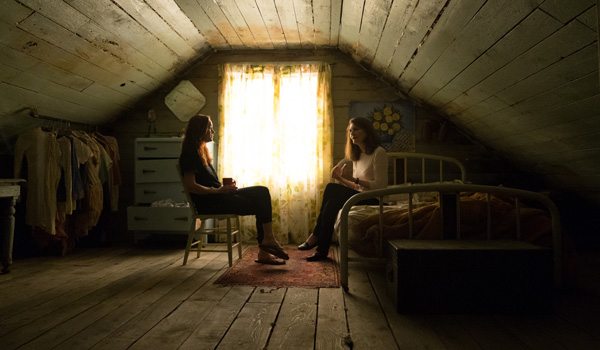I recently sat down with Jeannette Walls, author of the award-winning memoir “The Glass Castle”. Her autobiographical novel, which details her dysfunctional upbringing in a family that was constantly on the move, has been adapted into a film of the same name that releases on August 11th. Academy award-winning actress Brie Larson portrays Jeannette in the movie, but the woman behind the true story is just as prolific. Her verbose responses have been edited for length.
****
Ryan Bordow: I write for AZ Big Media, so I have to bring up that you were originally from Arizona!
Jeannette Walls: Born in Arizona. Born in Phoenix!
RB: How long did you spend here before you ended up on your nomadic journey?
JW: It’s hard for me to know exactly, because we were always coming and going. We’d come back to Phoenix, and then we’d live in some other place in Arizona, and then we’d go to California and then we’d go to Nevada — Phoenix is where I lived before we went to West Virginia. It was a place that I’d always wanted to go back to. It was a place of warmth and a big sky, and it felt clean compared to the little coal-mining town that we moved to. I missed it desperately. Phoenix will always have a place in my heart.
RB: That makes sense. You mentioned not remembering things completely clearly: how did you remember all these details from your childhood so accurately for “The Glass Castle”?
JW: It’s really funny because when I was writing the book, it was my husband who suggested I open with the burn [a severe stomach burn during a cooking accident]. I was actually three when that happened; in the movie they moved it to later in life because they didn’t want a three-year-old actor. People say, ‘how could you possibly remember something’ — I’ve been told that traumatic memories are stored in a different part of the brain for evolutionary reasons, because they’re more accessible. My childhood was very traumatic. There are a number of episodes I remember extremely vividly: I can remember the nurse’s hair and the Wrigley spearmint gum she gave me. It was so different from my life; the hospital seemed so glamorous and comfortable. Once you get a hold of the thread, you pull on it.
RB: Can you speak to how accurately the film portrayed those early childhood days?
JW: I thought it was brilliant. I was a little bit nervous because some early screenplays were not accurate and people made things up. Destin [Daniel Cretton, the director/writer] was just reverential about the truth. He really wanted to get it right and I don’t think it paid homage to me — it paid homage to the truth. This is a man who cares deeply about personality and character. He taught me a lot about storytelling. He couldn’t have gotten everything from the book into the movie, but I thought it was an absolutely fair balance between the pain and the joy. He went through the book and underlined like, ‘this must be in the movie!’ and in a couple places he said ‘this is the movie!’ and he didn’t even include that scene because he had to cut so much! Every cut was very painful for him. Like he really wanted to do the scene where the cheetah licks my hand at the zoo, but he knew he couldn’t, so he just mentioned it.
RB: It’s hard to fit a cheetah in the budget sometimes.
JW: [Laughs] They were just so brilliant and so aware of getting it right. They used lines from my father’s actual poetry for one of the songs that they wrote. The passion for accuracy was stunning. They talked to my mother, they talked to me, they talked to my brother — they visited West Virginia and commented on how the light there was different from any sunlight they’d ever seen, and went to great lengths to recreate that. It was fascinating to me.
RB: Thank you for that answer. One more question: “The Glass Castle” deals with a lot of trauma — how do you perceive the difference between surviving that trauma and thriving in it?
JW: Oh, that’s so interesting. I believe that the worst experience in the world has a valuable gift inside if you are willing to seek that gift. Everything is both a blessing and a curse, and it’s entirely up to us which one we choose to focus on. There were horrible, awful things from my childhood — but there were also lovely things. I think I’m one of the luckiest human beings to ever live. It’s not the hand that you were dealt; it’s much more how you play your hand. There are people who had much greater wealth than I had that consider themselves to be extremely unfortunate — and they were! But there are people I’ve met who had it much worse than I did, and they find joy.
RB: Definitely.
JW: It’s about sharing your story and realizing that you’re not alone. It’s putting the past to work for you. Not being in denial about it, not pretending it didn’t happen, not resenting it, but just saying, ‘there are gifts there if I’m willing to receive them.’ Your story is how you choose to tell it.




